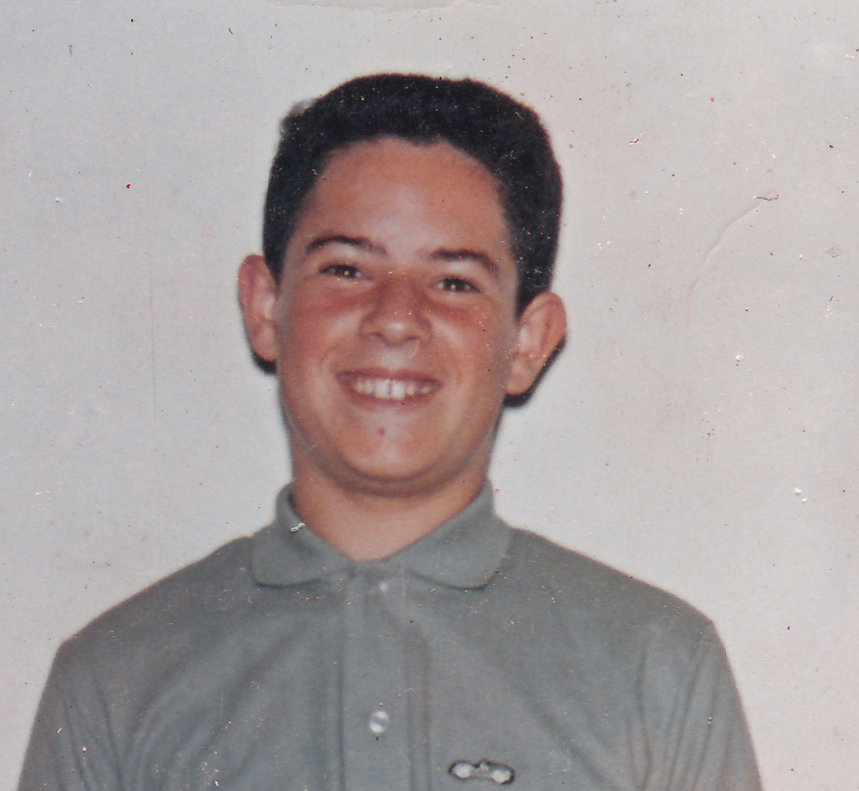I saw this story about a boy who was arrested for refusing to say the Pledge of Allegiance, and it reminded me of a similar transgression from my youth.
When I was in high school, we had to say the Pledge of Allegiance at the beginning of the first class we had each day. It was the end of the turbulent 1960s, the Viet Nam war was raging, protest was in the air, and I thought the school was ludicrous to ask students to renew their pledge of loyalty to a piece of cloth every day, as though the pledge wore off sometime overnight and had to be reapplied. So one day I decided not to.
At the time, my first class of the day was German, and my German teacher and I had an interesting relationship. On the one hand, she sincerely seemed to like me, but on the other my inability not to open my mouth and crack wise at the slightest opportunity infuriated her sensibilities. Almost every day she tried (and failed) to put me in my place, usually literally with a hollered “Setzen Sie sich!”, and so she saw this refusal of mine to stand up and recite the Pledge as a particularly valuable opportunity for place-putting.
She ordered me to report to the Principal’s office to explain myself. This order wasn’t because she disagreed with my anti-Pledge stance—she was something of an anti-war liberal herself and, I think, secretly approved of my protest. Rather, it was a double-bird-with-a-single-stone opportunity for her: she could get my disruptive ass out of her class for one day, and could bedevil the school Principal, whose few fans among the faculty did not include her, with my smug adolescent attitude and anti-war sentiments.
So I marched off to the Principal’s office, which, by the way, I (and my parents) had already come to know well at this point in my academic career. As I impassively stood before his desk, he fixed me with an obsidian gaze asked me why I was there. I told him that I had refused to say the Pledge that day and that Frau Vorster had ordered me to see him about it.
“I see,” he said, and then launched into a lecture about liberty and freedom and all the flag stood for and about all the brave men who had given their lives for it over the years. He wrapped up by asking me if I would say the Pledge out of respect for them.
I told him, “No.”
Non-plussed, he asked me sternly, “Is it because you hate America?”
With feigned outrage, I replied, “No.”
“So, then, why won’t you say it?”
Finally, the jackpot question, the one that my teacher likely assumed I would answer with some anti-war sentiment or other, delivered with all the self-assured righteousness and disdain of which she knew I was capable. I told him, “I didn’t say the Pledge because we don’t have a proper flag to say it to.”
His eyes widened. “What do you mean? Of course your classroom has a flag.”
“Yes, but it’s not an American flag.”
“What?!”
“The flag in our classroom has only 48 stars,” I smugly let him know.
And it was true. I had noticed early on that the flag in my German classroom had but 48 stars—although Hawaii and Alaska had become states around ten years earlier, the school had not yet got around to replacing all the old 48-star flags in its classrooms with the current 50-star edition. “I refuse to pledge allegiance to a flag that isn’t our country’s flag!” I said proudly.
He blinked and summoned the head custodian, who said he would check, and left. We sat and waited in silence. A few minutes later he stuck his head back in the office and said, “Kid’s right. I’ll change it.”
The Principal and I stared at each other for a few more seconds, then he lowered his eyes and gruffly ordered me back to class.
My teacher nodded at me as I came back and smiled to herself, no doubt thinking that I had either kowtowed to the Principal or had been dismissed from his presence out of sheer annoyance. What she thought later that day when the custodian brought in a new flag and swapped out the old one I never bothered to ask her.
![]() However (and it seems there’s always a “however” in comedy) my pointing out the baby Jesus’ religion made me realize that at the Nativity He was just a few short days from His bris, and that led me to this:
However (and it seems there’s always a “however” in comedy) my pointing out the baby Jesus’ religion made me realize that at the Nativity He was just a few short days from His bris, and that led me to this:![]()
